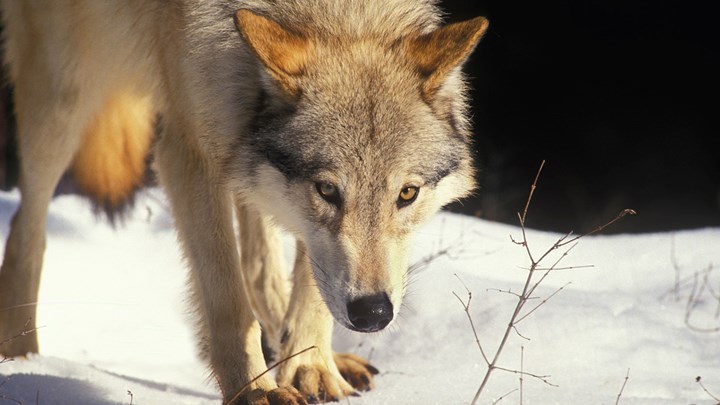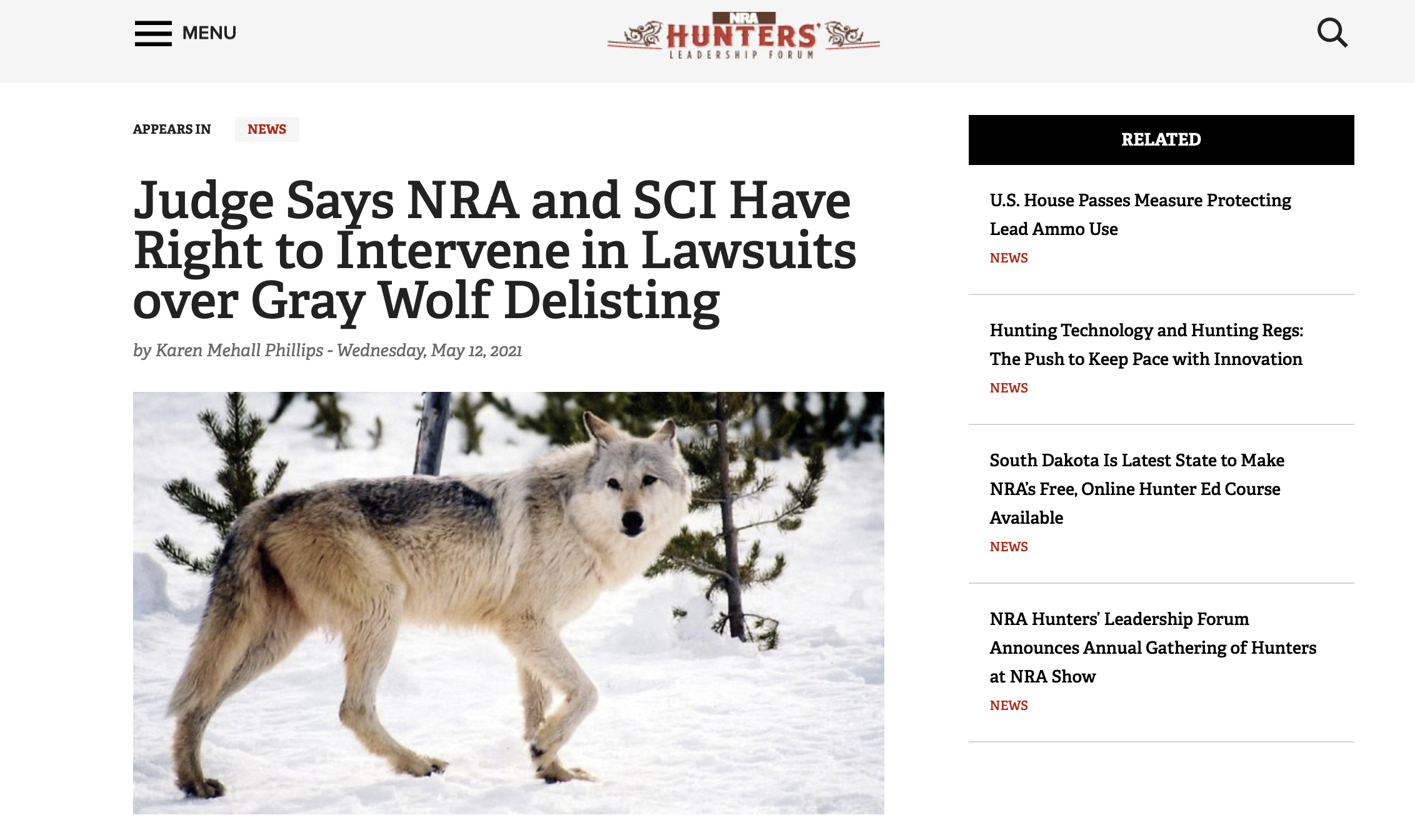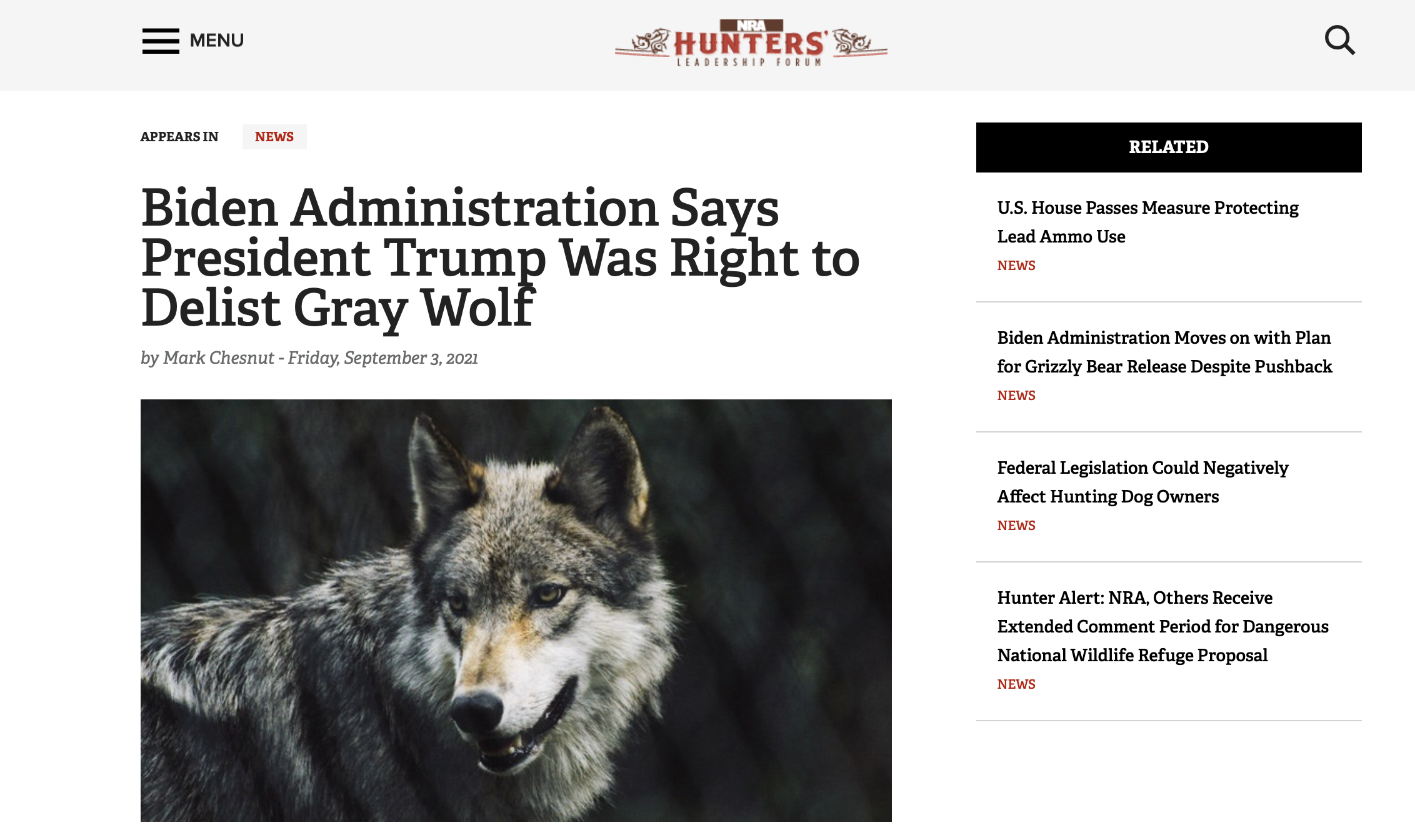
by Karen Mehall Phillips - Monday, May 6, 2024

Few wildlife management debates are as heated or emotionally charged as decisions over whether to remove long-since-recovered gray wolves and grizzly bears from federal Endangered Species Act (ESA) protections. Up for debate last week in the U.S. House was bill H.R. 764—the Trust the Science Act seeking to again delist the recovered gray wolf in the Lower 48, return its management to the states and prohibit judicial review of the decision. Introduced by Rep. Lauren Boebert (R-Colo.) and co-sponsored by Rep. Tom Tiffany (R-Wisc.), the bill passed by four votes—209-205—sending outraged animal rights extremist groups to their online platforms to condemn the common-sense move resulting from the fact ESA goals for the species were met. The bill now advances to the Senate for action—providing Senate leadership will take up the discussion, side with science and acknowledge the gray wolf as an ESA success story.
In commenting on House passage of H.R. 764 on behalf of the NRA’s millions of members, NRA-ILA shared, “The NRA has long supported legislative and legal efforts to return wildlife management to the states. This legislation would not only allow states to better manage wolves, but it would also benefit hunters by allowing them to play a more active role in wildlife management and protect vulnerable big-game animals from over-predation.” The comment is in step with the fact NRA members advocate for scientifically grounded methodologies that pair accurate, localized wildlife data with public conservation policy managed by state-level agencies.
As reported when H.R. 764 was introduced last year, the bill calls for the Department of Interior (DOI) secretary to “trust the science” and reissue its 2020 final rule delisting gray wolves put forth by the Trump administration’s DOI. In accordance with the Administrative Procedures Act, it also limits judicial review of the decision through Congress’ Article I legislative authority to oversee agency rulemaking to prevent an activist judge from delaying the rule’s implementation. This is important. Since 2003, every time the DOI’s U.S. Fish and Wildlife Service has issued a rule to down-list or delist the recovered species, animal rights extremist groups have gotten it overturned by the courts.
The NRA and other hunter-backed conservation groups watched history repeat itself with the 2020 rule. In 2021, the anti-hunting extremist groups Defenders of Wildlife, WildEarth Guardians and the Natural Resources Defense Council filed lawsuits to tie up the delisting process in court. The result? State and tribal wildlife agencies were prevented from sustainably managing their wolf populations and using hunting as a cost-effective wildlife management tool.

Standing with hunters, NRA-ILA and Safari Club International filed motions to intervene in three lawsuits challenging the Trump-era decision. As shared by this NRA website, a federal judge in California granted their motions. In giving hunters a voice, in 2021 NRA-ILA shared that the gray wolf population in the Lower 48 totaled more than 6,000 wolves, a number that greatly exceeded the combined recovery goals for the Northern Rocky Mountains and Western Great Lakes populations. Even the Biden administration said the Trump administration was right, issuing its own court filing in the United States District Court for the Northern District of California. It noted: “This case should turn on the proper interpretation and application of the ESA—not policy preferences on who should manage wolves,” and it pointed out that Congress had already resolved the debate.

Then came the flip-flop. Under pressure from animal rights extremist groups, the Biden administration reversed its stance in October 2021. The DOI announced it would review the ESA status of the gray wolf after all, focusing on wolf populations in the western states.
In February 2022, an activist judge in California vacated the 2020 rule. Though research showed gray wolf populations exceeded recovery goals, the species was relisted by judicial fiat—a move that NRA-ILA appealed in April 2022, leading to the introduction of H.R. 764. According to Colorado Public Radio, the White House quickly came out against the bill, stating it would “undermine America’s proud wildlife conservation traditions and the implementation of one of our nation’s bedrock environmental laws.”
Once again, federal politics put us back to square one. Two years later, extremists’ constant drumbeat to keep gray wolves on the ESA list continues to distort the truth about a recovered species as emotions get prioritized over facts—perhaps easy to do for those who do not live amongst wolves. When wolves are left unmanaged, they take a toll on farmers’ and ranchers’ operations, big-game species, threatened and endangered species and human safety. Fortunately, should the species be delisted, state wildlife agencies are staffed with wildlife biologists who are trained to balance the needs of America’s renewable wildlife resources with resource use.
House Committee on Natural Resources Chairman Rep. Bruce Westerman (R-Ark.), who led the House debate on the bill, underscored just that. He explained how the bill’s passage would not mean open season on wolves but would put their management into the hands of states—a move that has had bipartisan support from multiple administrations. Saying the species should instead be celebrated as an ESA success story, he simply advocated for following the original intent of the ESA: “to recover species on the brink of extinction and delist them when they recover.”
In official statements released by their offices, Boebert and Tiffany underscored that the science is clear on this issue. Highlighting the need to use scarce taxpayer funding on endangered species that actually need help recovering, Boebert advocated for her constituents in rural Colorado as farmers and ranchers deal with increasing wolf attacks on livestock, thanks to passage of a 2020 ballot measure that mandated the introduction of gray wolves in Colorado. Tiffany pointed to the fact the species has exceeded recovery goals and seeks to restore control over the sky-rocketing gray wolf population in his home state of Wisconsin.
Stay tuned for updates from this NRA website and NRA-ILA, which has represented hunters in every piece of major litigation involving gray wolves over the past two decades. Committed to ensuring that hunters continue to play a vital role and have a voice in the management and conservation of America’s wildlife, NRA-ILA upholds a core NRA objective: “to promote and defend hunting as a shooting sport and a viable and necessary method of fostering the propagation, growth and conservation of our renewable wildlife resources.”
As the hunting community awaits the uphill battle in the Senate, many of us will recall that a bill to delist gray wolves also passed the House in 2018 but was never addressed by the Senate. If the House bill dies in that chamber again, there will be no consolation prizes for the losers—the farmers, ranchers, hunters, people who live amongst gray wolves and the gray wolves themselves—as the species’ uncontrolled population growth and resource consumption ultimately impacts biodiversity. The hope is that the current ESA resources allocated to support this recovered species one day can be directed to a species in need.
E-mail your comments/questions about this site to:
[email protected]
Proudly supported by The NRA Foundation and Friends of NRA fundraising.
